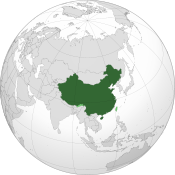Not enough names to go around in China, ministry says
Wednesday, June 13, 2007


There are too many people named Wang in China – around 93 million. Also, there are too many with the name Li, about 92 million, and 88 million people named Zhang.
For 85 percent of the population of 1.3 billion in China, there are just 100 surnames, the Ministry of Public Security says, and, according to a report in yesterday's China Daily, that's not nearly enough.
The dearth of surnames creates too much confusion and problems in daily life, leading to many cases of mistaken identity, officials say.
The solution, the ministry says, is combined surnames, which it is proposing in a draft regulation. For example, the China Daily said, if a father's family name is Zhou, and the mother's is Zhu, their son or daughter could have four options for a new surname, Zhou, Zhu, Zhouzhu or Zhuzhou.
The move could make for up to 1.28 million new surnames, said Guan Xihua, a household registration officer with the Beijing public security bureau.
In addition to the popular Wangs, Lis and Zhangs, there are around 20 million each of people named Chen, Zhou and Lin, according to the ministry.
Combine these family names with popular given names, and the result is 100,000 people with the name Wang Tao, according to the Chinese Academy of Sciences.
Du Ruofu, a retired researcher on Chinese surnames from the Chinese Academy of Sciences, told the China Daily that the hybrid surnames are already popular with young couples, even though they are not strictly allowed.
China's Marriage Law says that a newborn can have the surname of either the father or the mother, but does not yet mention a combined surname.
The combined surname would also promote gender equality, Du said. Additionally, Du said people from ethnic minority groups should be encouraged to use traditional surnames, instead of adopting Han Chinese names, which dilutes cultural heritage and diversity.
The ministry's draft regulation allows ethnic minority letters or characters, but bans any foreign letters, self-made characters, pinyin, numerals or the complex form of simplified Chinese characters.
Sources
edit- Zhu Zhe. "What's in a surname? A combination of mother's and father's" — China Daily, June 12, 2007
- "China re-think on names shortage" — BBC News Online, June 12, 2007

